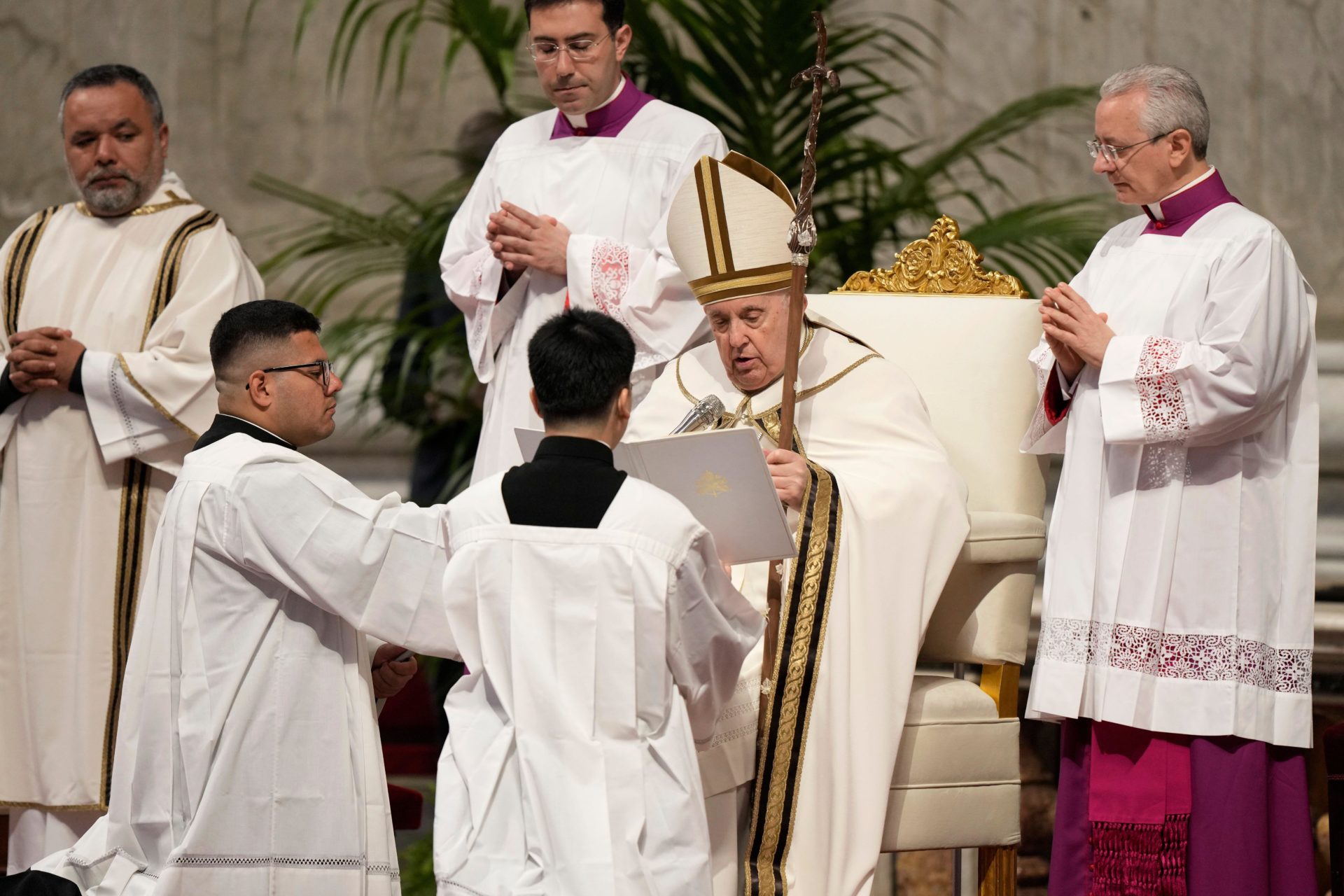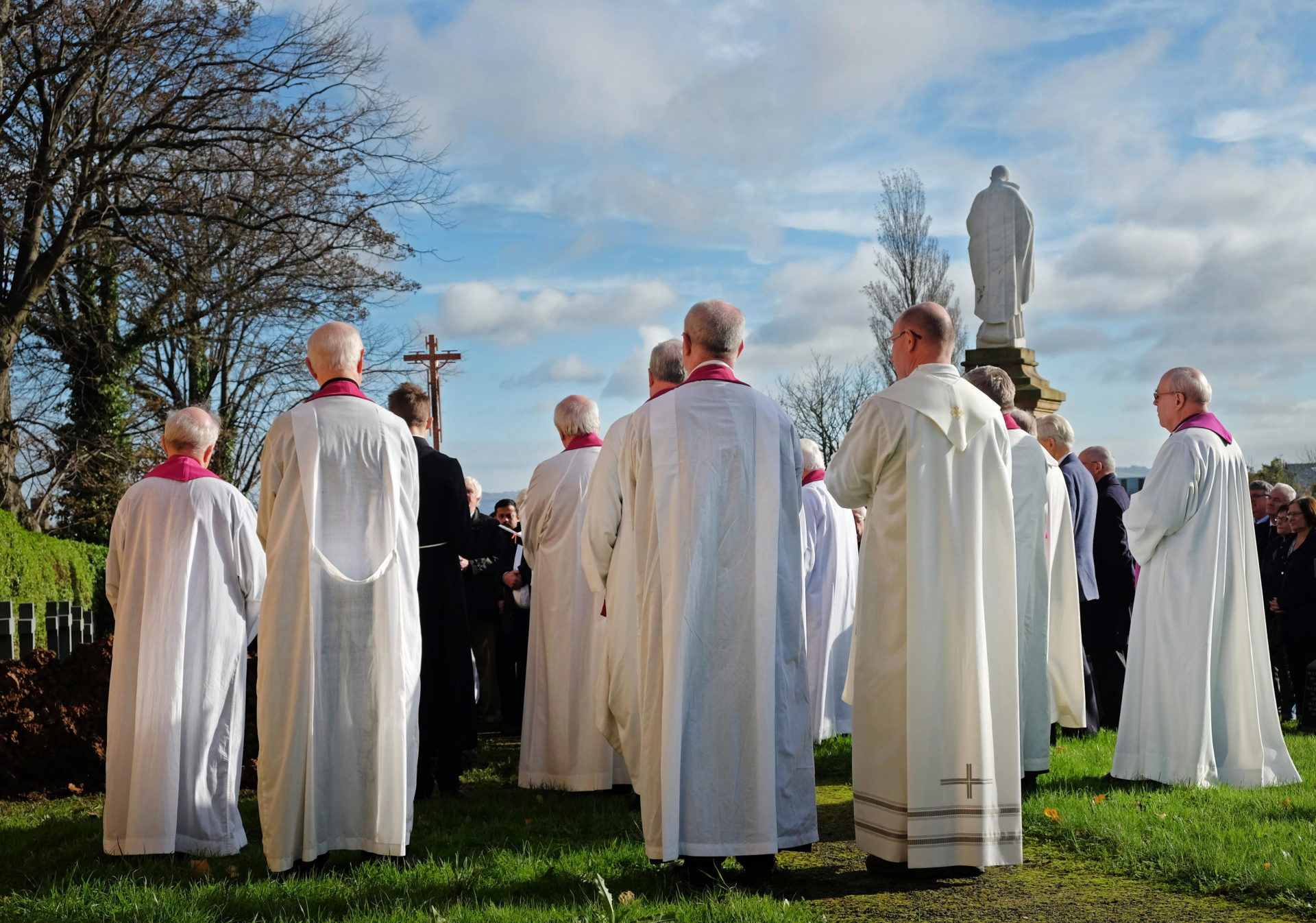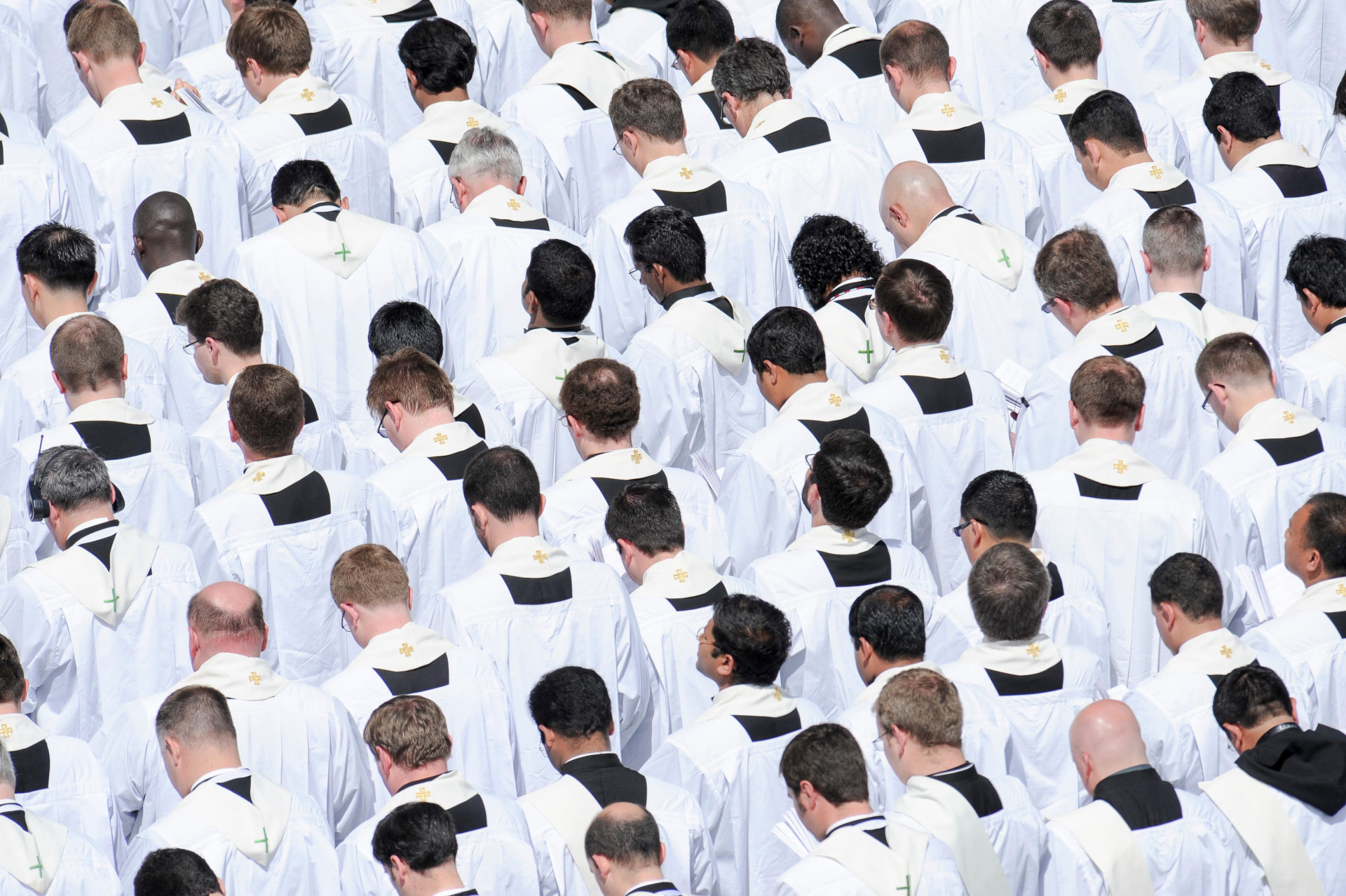— Groundbreaking agreement will include only those Anglican dioceses that do not ‘ordain’ female priests.

By Jules Gomes
The Vatican is taking historic strides towards achieving “full communion” with Anglicans who do not ordain female priests. It is doing so by recognizing Anglican holy orders and churches, but not requiring them to merge with or convert to Roman Catholicism.
“We are scheduled to begin our talks at the Vatican this coming September 26-27,” Bishop Ray Sutton, presiding bishop of the Reformed Episcopal Church in the U.S., announced in an Ecumenical Relations Task Force Report of the Anglican Church in North America (ACNA) College of Bishops.
The ACNA bishops, who oversee 128,000 Anglicans in more than 1,000 congregations across Canada, Mexico, and the United States, met during a provincial council from June 20-25 at St. Vincent’s College in Latrobe, Pennsylvania.
Secret Vatican Meeting
The report reveals that Archbishop Foley Beach, who was then the primate of ACNA; Bishop Eric Menees, the chair of dialogue with the Roman Catholic Church; and Bishop Sutton flew to the Vatican for meetings at the Vatican’s Dicastery for the Doctrine of the Faith (DDF) in June 2023.
The Anglican bishops held talks with Catholic Archbishop Joseph Augustine Di Noia, who was then the adjunct secretary of the DDF, and his assistant, Fr. Andrew Liaugminas, who is seconded to the DDF by the archdiocese of Chicago.
In an unprecedented move, the process of Anglican-Roman Catholic union is being led by the DDF — the Vatican’s doctrinal watchdog — instead of the Vatican’s Dicastery for Promoting Christian Unity, which is the Holy See’s conventional means of dialogue with Christians of other denominations.
This correspondent learned of secret meetings between ACNA bishops and top officials at the DDF earlier this year and published an exclusive news story about the historic meeting in the summer edition of Mass of Ages, the quarterly magazine of the Latin Mass Society.
Proposal to Base Union on Malta I
According to the ecumenical report obtained by The Stream, the union between Rome and orthodox Anglicans aims to be based on a Malta II proposal — a manifesto that revives the Malta I agreement reached between Pope Paul VI and the Archbishop of Canterbury, Dr. Michael Ramsey, in 1966.
The Malta I agreement resolved to overcome differences between Catholics and Anglicans in matters like Petrine primacy, papal infallibility, and Mariology by ensuring that “neither Communion is tied to a positive acceptance of all the beliefs and devotional practices of the other.”
According to Malta I, unity and reciprocal acceptance of holy orders would be founded on the acknowledgment that each Communion “embraces the fundamental truths outlined in the ecumenical Creeds and the shared tradition of the ancient Church.”
“The Malta Report put forward a way to unity and communion between Rome and Anglicanism without requiring amalgamation or conversion to each other’s churches,” Sutton’s report underlined.
Liberal Anglicans Excluded
Historical events and past decrees like the papal bull Apostolicae Curae, which was issued in 1896 by Pope Leo XIII, declaring Anglican ordinations to be “absolutely null and utterly void,” are set to be reevaluated “only to the extent that they can shed light upon the facts of the present situation.”
Bishop Sutton said that Rome’s agreement with ACNA would eventually be applied to the Global South Fellowship of Anglican Churches (GFSA)/Global Anglican Future Conference (GAFCON), an association of conservative Anglicans in the non-Western world.
However, the process of working toward unity would not include “the Archbishop of Canterbury, the Church of England, the Anglican Church of Canada, or the Episcopal Church,” (Anglican bodies that ordain female priests and bishops), Sutton emphasized.
Roman Catholic officials holding senior positions in Rome have enthusiastically welcomed the proposal for “full communion” between Rome and the ACNA.
Catholics, Anglicans Welcome Proposals
Fr. Bryan Lobo, S.J., the dean of the Faculty of Missiology at the Pontifical Gregorian University, explained to The Stream the impact the move could have on the worldwide Church.
“Anglicans form the third largest body of Christians in the world (around 80 million members) behind the Roman Catholic and Eastern Orthodox churches in more than 165 countries. Today, a majority (55%) of the world’s Anglicans live in sub-Saharan Africa,” Lobo observed.
“If this bold initiative works and is then broadened as the ACNA proposal states, communion between Catholics and Anglicans in the Global South would be an overwhelming witness of the Kingdom and mutually encouraging and empowering to both churches.
“I think ecumenism should be considered as one of the primary missions of the Church. I would therefore support any initiative of the Catholic Church towards ecumenism.”
Anglicans reciprocated with messages of hope that the joint venture would succeed.
“I’m an orthodox Anglican priest, so this would change my life, as I live in formerly Catholic Spain. I would love to help local Catholics by presiding at communion and hearing confessions,” said Fr. Duane Alexander Miller, an expert in World Christianity with a doctorate from Edinburgh University.
“I think it’s a good thing that the church is looking for unity since every single denomination already prays for Christian unity,” Fr. Calvin Robinson, a media celebrity and Old Catholic priest, told The Stream. “The ACNA has become the predominantly recognized orthodox Anglican body in the U.S., and while it still has some issues to work through, as do all denominations, the fact that they are engaging with Rome shows that they are serious about providing a Catholic perspective to the Christian faith in America.
“I know ‘ecumenism’ is a dirty word to some people, and there will be a lot of doubling down from people who do not actually want a united Church,” Robinson warned. “They will say there’s already the Ordinariate. Of course, the Ordinariate offers a very particular charism for very particular demographic, but it isn’t a way to reunite the church.”
Convert Clergy Hostile to Unity
Pope Benedict XVI established ordinariates in 2009 in the apostolic constitution Anglicanorum Coetibus as a means of receiving converted Anglican priests or laity into the Roman Church. Most Anglican priests were reordained unless they could prove they had been “validly” ordained as Anglicans.
Anglican clergy who converted to Catholicism and are now members of the Ordinariate responded with hostility to the proposals for communion between Rome and the ACNA.
“Surely they should just join the ordinariate, no?” Fr. Ed Tomlinson, an Anglican convert and Ordinariate priest, posted on Facebook. “During those talks they will be told to join the ordinariate — that is Rome’s offer and it won’t change.”
Fr. John Konstantin Tee, also a convert and Ordinariate priest, responded, “The traditional teaching of the Church has always been that the Church is One. It’s just some people have separated from that unity. You have two choices. You either join that Church of Oneness or you choose to remain apart from it. Ecumenism is a non-sense born from a faulty Council.”
“It already had a dividing effect on the ACNA. Groups have already left,” an Ordinariate priest and convert posted on Twitter. “Also, as was said at the time, all they did was turn the clock back 20 years. Most of the serious Anglo Catholics have gone Ordinariate or Orthodox.”
Same-Sex Blessings Stall Talks
A high-level ACNA source told The Stream that a major sticking point in the dialogue was Pope Francis’ recent pastoral declaration Fiducia Supplicans, which permits priests to offer informal and non-liturgical blessings to same-sex couples.
The dialogue ground to an abrupt halt days after the DDF issued Fiducia supplicans, with Anglicans arguing that ACNA and other orthodox Anglicans had split from the Episcopal Church in the U.S. precisely over the issue of the acceptance of homosexual unions by liberal Anglican jurisdictions.
Bishop Sutton explained the problem orthodox Anglicans had with the document:
Fiducia Supplicans has resulted in conflicting interpretations of it, as well as polarization within the Roman Church. Cardinals, Archbishops, and Bishops have even opposed it. The USCCB has offered a ‘sic et non’ (‘yes’ and ‘no’) and mitigating statement in response to Fiducia Supplicans. With our conciliar view of the Church, we see the failure of a Magisterium to maintain the integrity and unity of the Faith.
The ACNA report clarified that the DDF had reassured Bishop Menees that “Fiducia Supplicans is actually an attempt to “curb but not open up the practice of homosexual behavior.” The Catholic Church “still prohibits homosexual practice and by canon warns of removal from the clergy for such behavior,” it added.
Please Support The Stream: Equipping Christians to Think Clearly About the Political, Economic, and Moral Issues of Our Day.
On Rome’s side, the sticking point is with Anglicans who ordain women to the priesthood and episcopate. “The door of union and mutual recognition of holy orders would remain open only for Anglican provinces that were orthodox and had not permitted the ordination of women or gay blessings/marriage,” an ACNA source confirmed.
Meanwhile, on June 13, the Vatican released a document titled “The Bishop of Rome,” which seeks to reconfigure the office of the Bishop of Rome from an absolute monarchy into a ministry of “first among equals” for the sake of ecumenical unity, The Stream reported.
“Today the Petrine ministry cannot be fully understood without this openness to dialogue with all believers in Christ,” Pope Francis affirmed in the document.
Complete Article ↪HERE↩!








